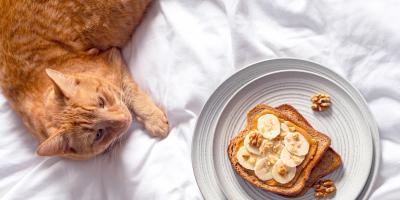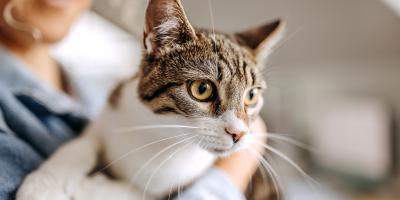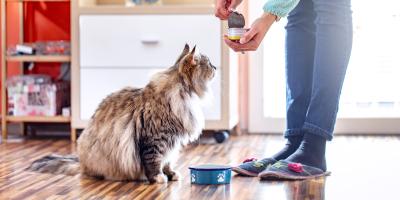
Can Cats Eat Human Food?

While cats get all their essential nutrients from a complete and balanced cat food, there are a few human foods they can enjoy in moderation. If you're a Canadian pet parent wondering what’s safe to share with your feline friend, this guide will help you navigate the dos and don’ts.
Should You Feed Your Cat Human Food?
Cats are obligate carnivores, meaning they require nutrients found primarily in animal tissue. While their diet should be meat-based, some fruits, vegetables, and grains can be offered as occasional treats. Just remember: treats—including safe human foods—should make up no more than 10% of your cat’s daily calories. The remaining 90% should come from their regular cat food.
Safe Human Foods for Cats
Meats Cats Can Eat
Cats can safely eat cooked, lean meats such as:
- Chicken
- Turkey
- Beef
- Lamb
- Liver (in small amounts)
Always cook meat thoroughly and remove skin, bones, and excess fat. Avoid seasoning or sauces, which may contain ingredients harmful to cats.
Can Cats Eat Fish?
Yes—cooked fish like salmon, trout, or whitefish is safe and even beneficial. Fish contains omega-3 fatty acids that support joint, kidney, and skin health. Just ensure it’s boneless and fully cooked.
Whole Grains
Cats can eat small amounts of:
- Brown rice
- Oats
- Barley
These grains contain protein and fibre, and may already be included in your cat’s food. Serve plain and cooked.
Eggs
Cooked eggs (scrambled or boiled) are a great source of protein and amino acids. Never feed raw eggs due to the risk of Salmonella and biotin deficiency.
Vegetables Cats Can Eat (and Should Avoid)
Safe Vegetables
- Carrots: High in sugar, so offer sparingly and cooked.
- Broccoli: Steamed broccoli can aid digestion and may reduce interest in chewing houseplants.
- Green Beans: Fresh or frozen only—avoid canned due to high sodium.
- Asparagus: Steam and serve in small amounts; excessive potassium may affect urinary health.
- Corn: Often found in commercial cat food; high in fibre but should be fed in moderation.
Vegetables to Avoid
- Onions, Garlic, Chives: Contain thiosulphate, which can damage red blood cells and kidneys.
- Avocados: Contain persin, a toxin that can cause vomiting, diarrhoea, and pancreatitis.
- Tomatoes: Ripe flesh is less harmful, but stems, leaves, and unripe tomatoes can cause gastrointestinal upset.
If your cat ingests any of these, contact your veterinarian immediately.
Fruits Cats Can Eat (and Should Avoid)
Safe Fruits
Cats may not crave sweets, but they can safely eat small portions of:
- Blueberries: Limit to 2–3 due to sugar content.
- Bananas: Slice thinly and serve occasionally.
- Apples: Remove seeds and core; serve in bite-sized pieces.
- Watermelon: Seedless only, and in small amounts.
- Cantaloupe: Many cats enjoy the scent; offer in moderation.
- Strawberries: Remove leaves and stem; serve sparingly.
Fruits to Avoid
- Grapes & Raisins: Can cause vomiting, diarrhea, and kidney failure. The exact toxin is unknown, so it's best to avoid entirely.
Other Human Foods to Avoid
Some common household foods are dangerous for cats. Keep these out of reach:
- Chocolate (especially dark)
- Caffeinated drinks: Coffee, tea, energy drinks
- Alcohol
- Macadamia nuts & walnuts
- Xylitol: Found in sugar-free gum, candy, and some peanut butters
- Raw dough: Can expand in the stomach and cause serious issues
- Cooked bones: Can splinter and cause choking or internal injury
- Raw meat or fish: Risk of bacterial contamination
Final Tips for Canadian Cat Owners
Treating your cat is fine—as long as it’s done safely. Stick to vet-approved foods and always provide fresh water. If you’re ever unsure about a food, consult your veterinarian.
For more expert advice on feline nutrition, visit our Pet Expertise page and explore tips tailored for Canadian pet families.
Related articles


